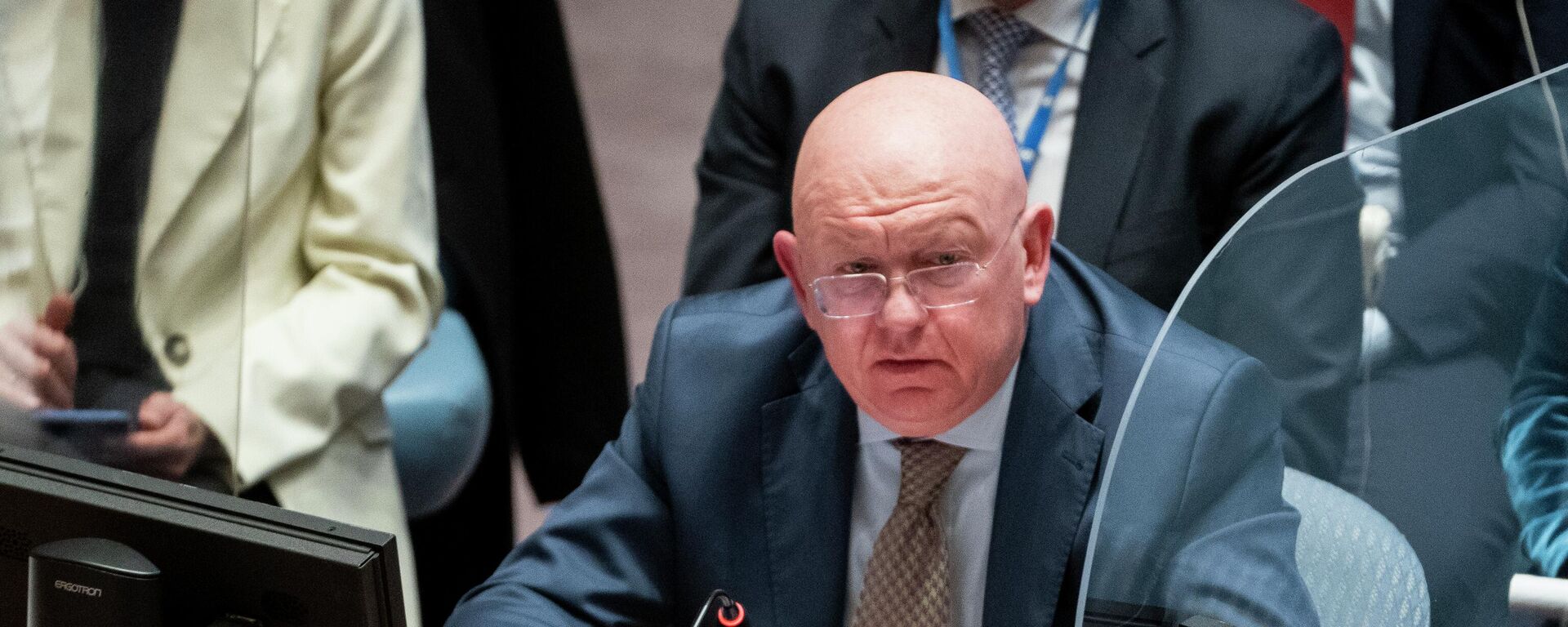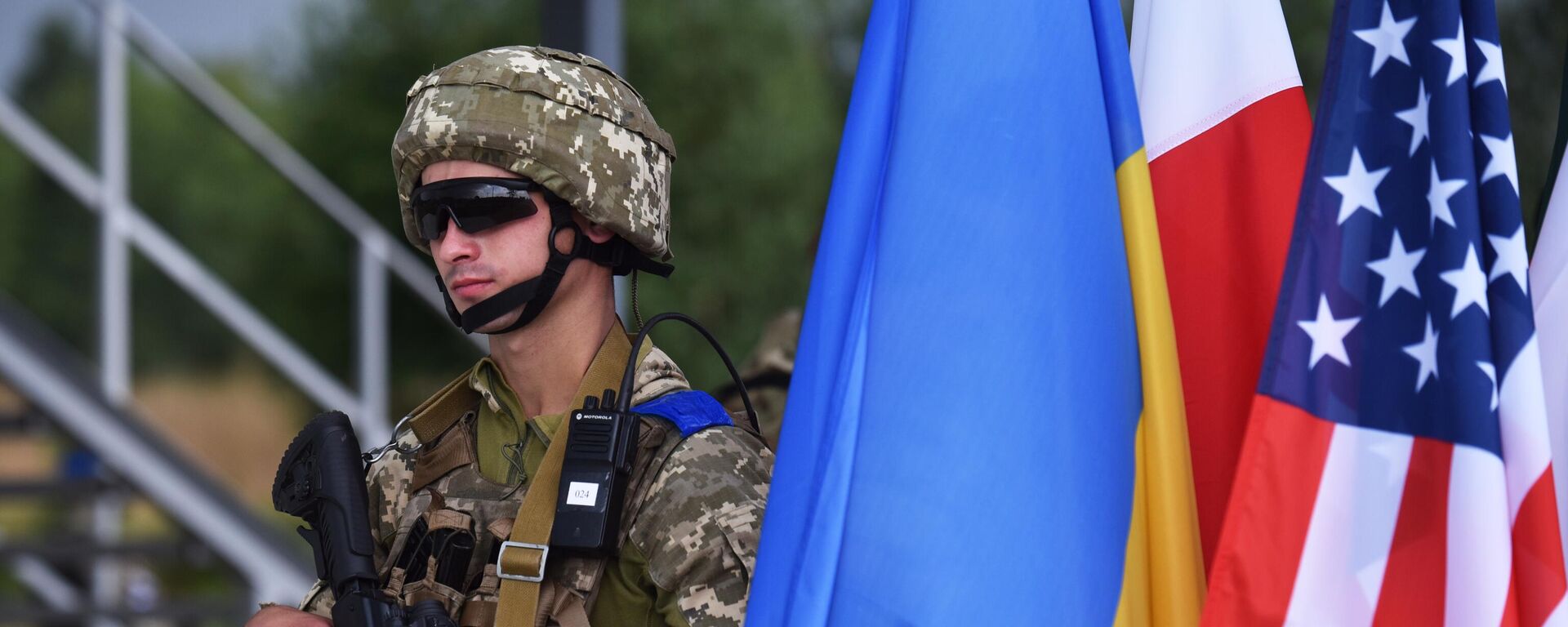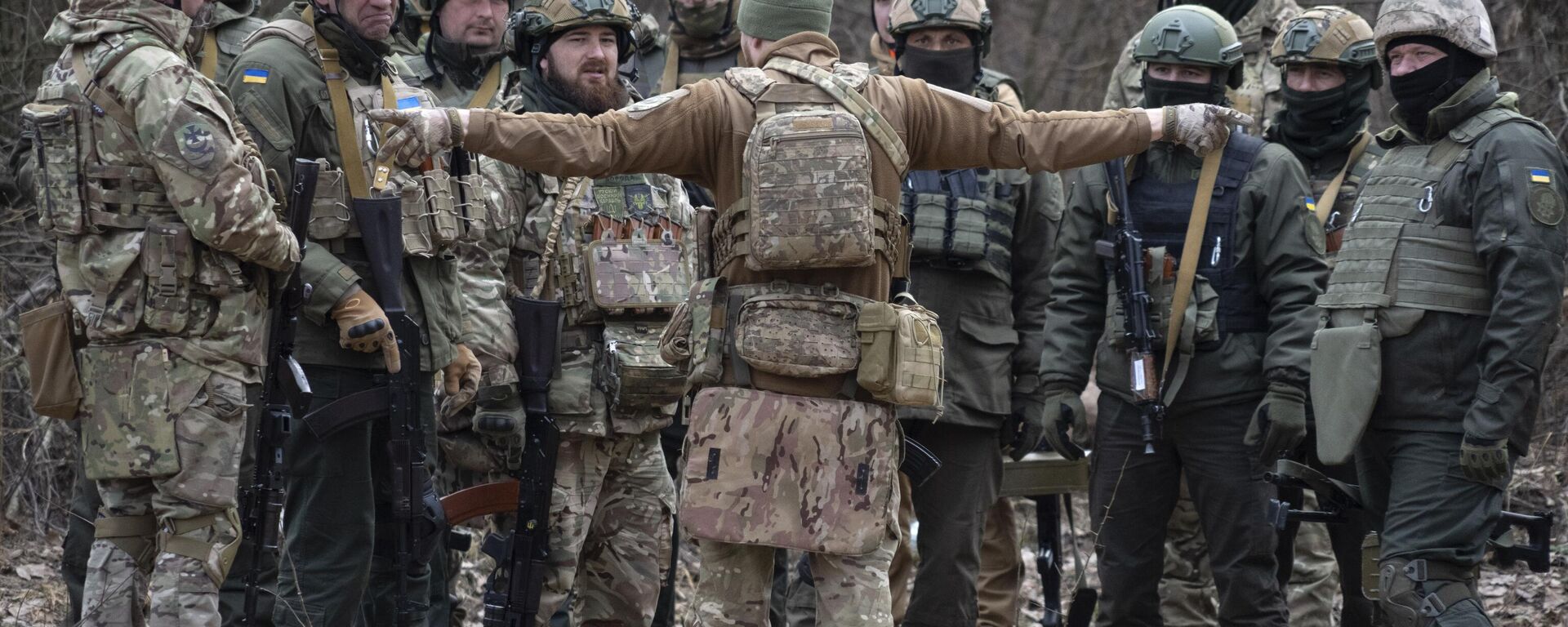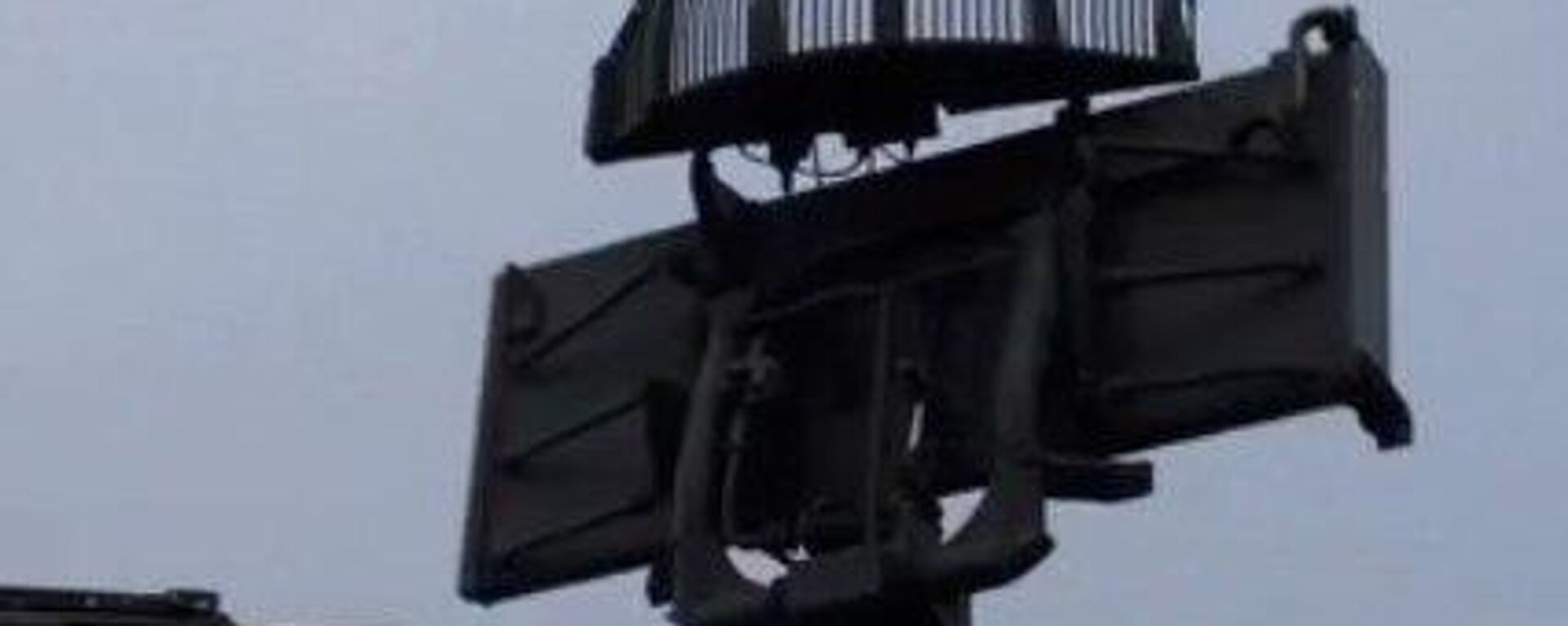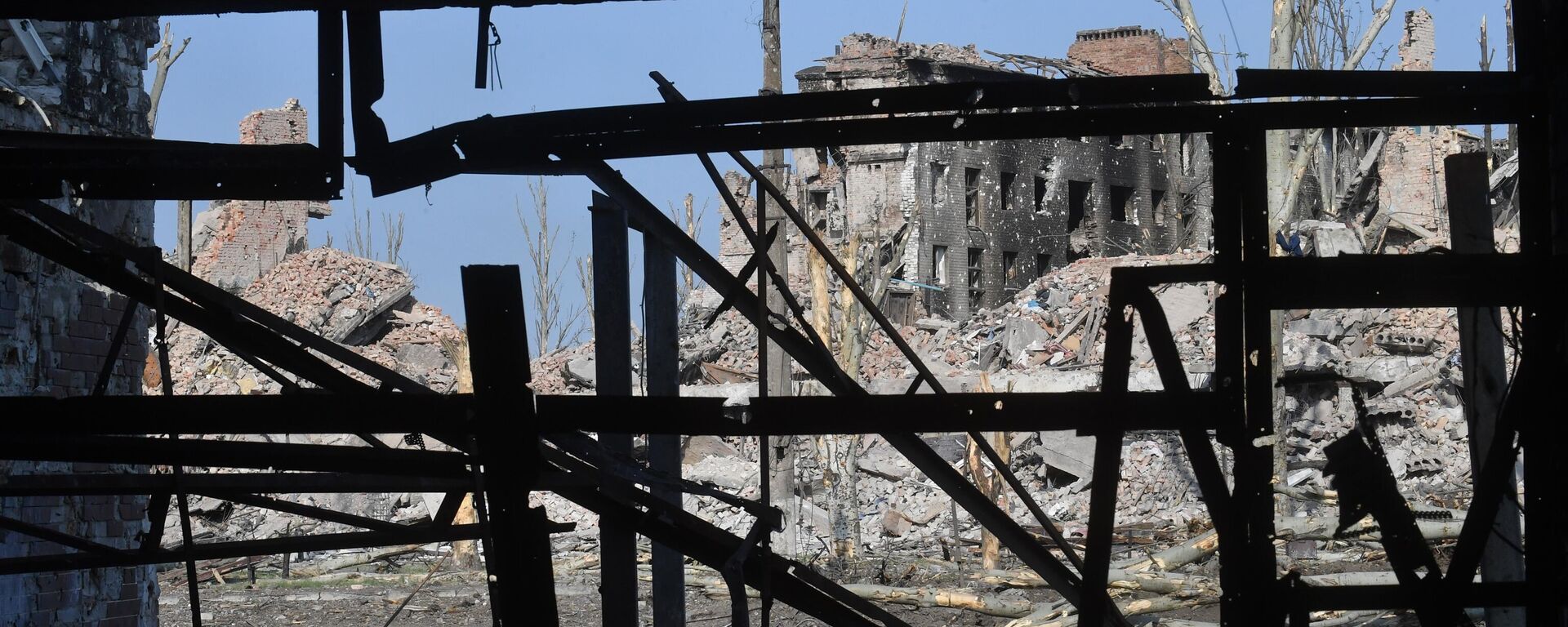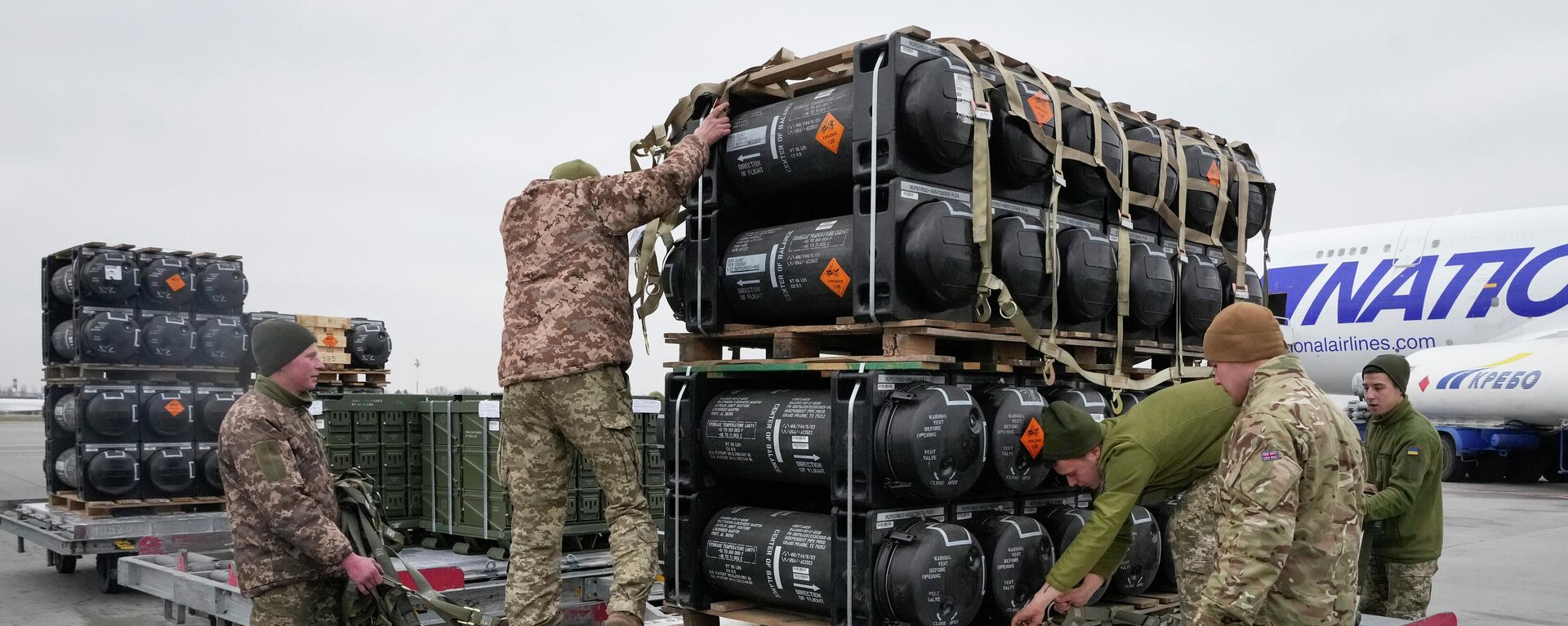https://sputnikglobe.com/20230630/alliance-divided-nato-members-positions-on-ukraine-joining-bloc-1111578105.html
Alliance Divided: NATO Members’ Positions on Ukraine Joining Bloc
Alliance Divided: NATO Members’ Positions on Ukraine Joining Bloc
Sputnik International
Moscow has spent a decade-and-a-half warning that Ukrainian membership in the Western alliance would radically undermine Russia’s security, and European security in general. What’s the position of individual NATO members on Kiev’s ambitions to join the alliance? Read Sputnik’s explainer to find out.
2023-06-30T13:37+0000
2023-06-30T13:37+0000
2023-06-30T13:37+0000
viktor yushchenko
viktor yanukovych
vladimir putin
ukraine
russia
nato
csto
military
https://cdn1.img.sputnikglobe.com/img/07e7/06/1e/1111577920_0:161:3071:1888_1920x0_80_0_0_23b0edd1b75d09697187ec545ab6eee4.jpg
France abandoned its long-held position on holding off on a Ukrainian bid to join NATO last week, resolving to support Kiev’s membership to try to “pressure” Moscow to the negotiating table as Ukraine’s summer counteroffensive sputters.The Russian Foreign Ministry blasted the reversal, warning that it may “lead to tragic consequences for security in Europe and around the world.”What’s Wrong With Ukraine Joining NATO?It all started in 2008 and the NATO summit in Bucharest, Romania, were bloc members formally “welcomed” the “Euro-Atlantic aspirations for membership” expressed by the Western-backed Ukrainian government of Viktor Yushchenko. Two years later, Yushchenko lost a bid for reelection, and Viktor Yanukovych was elected president, announcing a policy of bloc neutrality, saying Kiev would “neither join NATO nor the CSTO,” (i.e. the Russian-led alliance). Four years after that, in 2014, Yanukovych was ousted in a US and EU-backed coup, with the crisis sparking a civil war in the Donbass, and Ukraine’s post-coup authorities ultimately signing a constitutional amendment cementing Kiev’s aspirations to join NATO in 2019.Russia, weary of NATO’s creeping expansion in Eastern Europe starting in the late 1990s onward, despite promises to Moscow in 1990 and 1991 that the alliance wouldn’t push “one inch” east of a reunified Germany, warned of the consequences of potential Ukrainian membership in the bloc. In December 2021, President Putin pointed out that the neighboring country’s membership in NATO would allow the alliance to “put missile systems in Ukraine” with a “four to five minute flight time to Moscow.”The same month, Russia tabled a pair of comprehensive security proposals designed to radically reduce tensions between Moscow and the West, proposing legally-binding measures not to deploy troops, missiles, warships and other weapons in areas where they may be perceived as a threat to the other party, and crucially, no Ukrainian membership in NATO. The alliance rejected the proposals, reiterating that the bloc would not give up its so-called “open door” policy for membership. Several weeks after that, after Russian intelligence detected preparations by Kiev to launch an all-out assault on the Donbass, Russia kicked off its special military operation.Why Would Ukrainian Membership in NATO Be Especially Dangerous Now?According to NATO’s own rules for membership, countries with unresolved territorial disputes with neighbors, or unresolved internal conflicts, cannot join. They must also adhere to certain “democratic values” (i.e. multiparty elections, press and religious freedom, etc.). Ukraine today doesn’t meet any of these criteria.Moreover, as independent observers have warned, dangling the possibility of Ukrainian membership in the alliance now could escalate the Ukrainian conflict into a world-ending nuclear war, since Moscow cannot and will not accept such a scenario.How Does NATO Decide on New Members?The North Atlantic alliance has 31 members. Formally, important decisions are taken collectively and by “consensus.” That, in theory, means a single country could hold up a candidate’s application for membership. In practice, the ability to do so depends largely on a country’s political, economic and military weight, and the ability of its leaders to resist the directives of its allied ‘big brothers’.For example, alliance heavyweight Turkiye – which fields the second largest standing army in NATO after the United States, has been able to hold up Sweden’s application to join the alliance, citing security concerns related to Stockholm’s support for Kurdish militias which Ankara considers terrorists, plus tensions over the Swedish government’s apparent tolerance for Quran burnings.On the other end of the spectrum is Macedonia, a tiny Balkan country which ranks 28th of 31 in GlobalFirePower’s ranking of NATO countries’ military capabilities, which was literally forced to change its name (!) to the ‘Republic of North Macedonia’ just for the privilege of joining the Western bloc.In other words, NATO’s ‘consensus decision-making’ sounds fair in principle, but in practice is reminiscent of the quote from George Orwell’s Animal Farm about “all animals [being] equal, but some [being] more equal than others.”Who’s for, Who’s AgainstThe United States, which helped instigate NATO’s eastward expansion in the 1990s, and holds the final say on all important policy matters (the post of Supreme Allied Commander in Europe has been held by and American since the alliance was founded in 1949) firmly supports Ukrainian entry into the bloc.Earlier this month, President Biden confirmed that the door for Ukrainian membership in NATO was open, but assured that he was “not going to make it easier” for Kiev, which still needs to take some steps to prove itself. “I think they’ve done everything relating to demonstrating the ability to coordinate militarily, but there’s a whole issue of is their system secure? Is it non-corrupt? Does it meet all the standards…every other nation in NATO does,” Biden said.Britain, America’s most loyal European ally, also firmly supports Ukraine’s membership in the alliance. “Ukraine’s rightful place is in NATO,” Prime Minister Rishi Sunak told US media recently. “We want to make sure that we put in place security arrangements for Ukraine for the long term, so that we send a very strong signal to Vladimir Putin that we’re not going anywhere,” Sunak said. “We are here to stay and we will continue backing Ukraine, not just now but for years into the future.”Defense Secretary Ben Wallace has been even more resolute, suggesting Kiev should be allowed to skip carrying out a Membership Action Plan – the custom-tailored “roadmap” for alliance membership providing instructions on the steps a country needs to take to join the bloc.Ankara’s position on Ukraine’s future vis-à-vis NATO is among the vaguest. While Turkiye has supported NATO’s ‘open door’ approach to enlargement and has provided military aid to Kiev, the Turkish government has also sought to maintain political neutrality, offering its services as a mediator, and enjoying the economic fruits of maintaining economic cooperation with both sides of the conflict over the past year-and-a-half.Ankara clearly realizes the political weight it carries inside the alliance, both because of its large armed forces, but also its strategic position straddling Asia and Europe. Turkiye’s NATO allies, on the other hand, understand that they cannot just steamroll over Ankara’s interests (with an attempt to bully and sanction Turkiye into submission after it bought a Russian air defense system in 2017 failing miserably).Germany, the European Union’s industrial powerhouse, has also taken a muted position on Kiev’s NATO aspirations. Earlier this month, German Foreign Minister Annalena Baerbock told alliance colleagues that Ukraine cannot become a member of the bloc while it’s in a state of conflict. “NATO’s open door policy remains in place, but at the same time, it is clear that we cannot talk about accepting new members in the midst of a war,” she said.Ordinary Germans, who had enjoyed the fruits of economic cooperation with Russia before the escalation of the Ukraine conflict, and who are now bearing a large share of its economic fallout, are firmly opposed to the prospect of Ukrainian membership in NATO. A recent poll found that only 27 percent of respondents would agree to Kiev joining the bloc, with 54 percent opposed. 55 percent also called for negotiations between Russia and Ukraine to end the bloodshed.Prior to last week's surprise reversal, Paris's position was virtually identical to Berlin's, with France indicating that there could be no question of Ukraine joining the alliance amid the raging conflict.Most of NATO’s middle tier powers, including Italy, Poland, Canada and Greece, have expressed support for Ukraine’s eventual membership in NATO. Earlier this week, Italian Foreign Minister Antonio Tajani recommended that a special NATO-Ukraine Council be created at the upcoming NATO summit in Vilnius to facilitate further negotiations. Meanwhile, Polish President Andrzej Duda has personally spearheaded a diplomatic push within the alliance in Ukraine’s favor. Ottawa announced earlier this month that Ukraine should join “as soon as conditions allow for it,” and Greece has also offered its support, warning however that Athens’ provision of military assistance to Kiev has its limits.Spain, one of the last countries to join NATO before the end of the Cold War, has been enigmatic about its position. In an interview with local media earlier this week, Foreign Minister Jose Manuel Albarez evaded a direct answer on whether Madrid would support Ukraine’s ambitions. “At the Bucharest Summit many years ago, it was established that Ukraine would have its place in NATO. This is not open to discussion, but one must understand the complexity of talking about a country that’s at war,” Albarez said. The diplomat expects the issue to “be discussed at the summit in Vilnius,” and a decision on the matter taken “responsibly,” with a “clear signal” needing to be sent to Kiev on its future.Finland, which joined NATO in April 2023 after nearly 80 years of bloc neutrality, has promised Kiev all-round support in the conflict against Russia "for as long as it takes." Last month, Prime Minister Petteri Orpo has said that "in the long term, Ukraine's place is in NATO and the West, and also in the European Union." As for more immediate prospects "that's something that needs to be discussed very carefully with the foreign policy leadership in Finland, but also with NATO allies, very carefully," according to Orpo.
https://sputnikglobe.com/20230629/nebenzia-russia-has-no-intention-to-blow-up-npp-demands-end-to-kievs-provocations-1111561252.html
https://sputnikglobe.com/20230621/dangling-nato-membership-in-front-of-kiev-will-escalate-conflict-may-end-in-nuclear-war-1111368454.html
https://sputnikglobe.com/20230629/eu-trains-almost-30000-ukrainian-soldiers-as-part-of-blocs-mission---borrell-1111552529.html
https://sputnikglobe.com/20230527/russian-air-defenses-destroy-kievs-uk-supplied-storm-shadow-cruise-missiles-1110640471.html
https://sputnikglobe.com/20230629/ukraines-military-intel-complaining-partners-are-calling-for-violent-offensive-1111537031.html
https://sputnikglobe.com/20230628/us-obsessed-with-idea-of-inflicting-strategic-defeat-on-russia---embassy-1111515212.html
ukraine
russia
Sputnik International
feedback@sputniknews.com
+74956456601
MIA „Rossiya Segodnya“
2023
News
en_EN
Sputnik International
feedback@sputniknews.com
+74956456601
MIA „Rossiya Segodnya“
Sputnik International
feedback@sputniknews.com
+74956456601
MIA „Rossiya Segodnya“
ukraine, nato, north atlantic alliance, kiev, moscow, russia, membership
ukraine, nato, north atlantic alliance, kiev, moscow, russia, membership
France abandoned its long-held position on holding off on a Ukrainian bid to join NATO last week, resolving to support Kiev’s membership to try to
“pressure” Moscow to the negotiating table as Ukraine’s summer counteroffensive sputters.
The Russian Foreign Ministry blasted the reversal,
warning that it may “lead to tragic consequences for security in Europe and around the world.”
What’s Wrong With Ukraine Joining NATO?
It all started in 2008 and the NATO summit in Bucharest, Romania, were bloc members formally “welcomed” the “Euro-Atlantic aspirations for membership” expressed by the Western-backed Ukrainian government of Viktor Yushchenko. Two years later, Yushchenko lost a bid for reelection, and Viktor Yanukovych was elected president, announcing a policy of bloc neutrality, saying Kiev would “neither join NATO nor the CSTO,” (i.e. the Russian-led alliance). Four years after that, in 2014, Yanukovych was ousted in a US and EU-backed
coup, with the crisis sparking a civil war in the Donbass, and Ukraine’s post-coup authorities ultimately signing a constitutional amendment cementing Kiev’s aspirations to join NATO in 2019.
Russia, weary of NATO’s creeping expansion in Eastern Europe starting in the late 1990s onward, despite promises to Moscow in 1990 and 1991 that the alliance wouldn’t push “one inch” east of a reunified Germany, warned of the consequences of potential Ukrainian membership in the bloc. In December 2021, President Putin
pointed out that the neighboring country’s membership in NATO would allow the alliance to “put missile systems in Ukraine” with a “four to five minute flight time to Moscow.”
The same month, Russia tabled a
pair of comprehensive security proposals designed to radically reduce tensions between Moscow and the West, proposing legally-binding measures not to deploy troops, missiles, warships and other weapons in areas where they may be perceived as a threat to the other party, and crucially, no Ukrainian membership in NATO. The alliance rejected the proposals, reiterating that the bloc would not give up its so-called “open door” policy for membership. Several weeks after that, after Russian intelligence detected preparations by Kiev to launch an all-out assault on the Donbass, Russia kicked off its special military operation.
Why Would Ukrainian Membership in NATO Be Especially Dangerous Now?
According to NATO’s own rules for membership, countries with unresolved territorial disputes with neighbors, or unresolved internal conflicts, cannot join. They must also adhere to certain “democratic values” (i.e. multiparty elections, press and religious freedom, etc.). Ukraine today doesn’t meet any of these criteria.
Moreover, as independent observers have warned, dangling the possibility of Ukrainian membership in the alliance now
could escalate the Ukrainian conflict into a world-ending nuclear war, since Moscow cannot and will not accept such a scenario.
How Does NATO Decide on New Members?
The North Atlantic alliance has 31 members. Formally, important decisions are taken collectively and by “consensus.” That, in theory, means a single country could hold up a candidate’s application for membership. In practice, the ability to do so depends largely on a country’s political, economic and military weight, and the ability of its leaders to resist the directives of its allied ‘big brothers’.
For example, alliance heavyweight Turkiye – which fields the second largest standing army in NATO after the United States, has been able to hold up Sweden’s application to join the alliance, citing security concerns related to Stockholm’s support for Kurdish militias which Ankara considers terrorists,
plus tensions over the Swedish government’s apparent tolerance for Quran burnings.
On the other end of the spectrum is Macedonia, a tiny Balkan country which ranks 28th of 31 in GlobalFirePower’s
ranking of NATO countries’ military capabilities, which was literally forced to change its name (!) to the ‘Republic of North Macedonia’ just for the privilege of joining the Western bloc.
In other words, NATO’s ‘consensus decision-making’ sounds fair in principle, but in practice is reminiscent of the quote from George Orwell’s Animal Farm about “all animals [being] equal, but some [being] more equal than others.”
The United States, which helped instigate NATO’s eastward expansion in the 1990s, and holds the final say on all important policy matters (the post of Supreme Allied Commander in Europe has been held by and American since the alliance was founded in 1949) firmly supports Ukrainian entry into the bloc.
Earlier this month, President Biden confirmed that the door for Ukrainian membership in NATO was open, but assured that he was “not going to make it easier” for Kiev, which still needs to take some steps to prove itself. “I think they’ve done everything relating to demonstrating the ability to coordinate militarily, but there’s a whole issue of is their system secure? Is it non-corrupt? Does it meet all the standards…every other nation in NATO does,” Biden said.
Britain, America’s most loyal European ally, also firmly supports Ukraine’s membership in the alliance. “Ukraine’s rightful place is in NATO,” Prime Minister Rishi Sunak told US media recently. “We want to make sure that we put in place security arrangements for Ukraine for the long term, so that we send a very strong signal to Vladimir Putin that we’re not going anywhere,” Sunak said. “We are here to stay and we will continue backing Ukraine, not just now but for years into the future.”
Defense Secretary Ben Wallace has been even more resolute,
suggesting Kiev should be allowed to skip carrying out a Membership Action Plan – the custom-tailored “roadmap” for alliance membership providing instructions on the steps a country needs to take to join the bloc.
Ankara’s position on Ukraine’s future vis-à-vis NATO is among the vaguest. While Turkiye has supported NATO’s ‘open door’ approach to enlargement and has provided military aid to Kiev, the Turkish government has also sought to maintain political neutrality, offering its services as a mediator, and enjoying the economic fruits of maintaining economic cooperation with both sides of the conflict over the past year-and-a-half.
Ankara clearly realizes the political weight it carries inside the alliance, both because of its large armed forces, but also its strategic position straddling Asia and Europe. Turkiye’s NATO allies, on the other hand, understand that they cannot just steamroll over Ankara’s interests (with an attempt to bully and sanction Turkiye into submission after it bought a Russian air defense system in 2017 failing miserably).
Germany, the European Union’s industrial powerhouse, has also taken a muted position on Kiev’s NATO aspirations. Earlier this month, German Foreign Minister Annalena Baerbock told alliance colleagues that Ukraine cannot become a member of the bloc while it’s in a state of conflict. “NATO’s open door policy remains in place, but at the same time, it is clear that we cannot talk about accepting new members in the midst of a war,” she
said.
Ordinary Germans, who had enjoyed the fruits of economic cooperation with Russia before the escalation of the Ukraine conflict, and who are now bearing a large share of its economic fallout, are firmly opposed to the prospect of Ukrainian membership in NATO. A recent poll found that only 27 percent of respondents would agree to Kiev joining the bloc, with 54 percent opposed. 55 percent also called for negotiations between Russia and Ukraine to end the bloodshed.
Prior to last week's surprise reversal, Paris's position was virtually identical to Berlin's, with France indicating that there could be no question of Ukraine joining the alliance amid the raging conflict.
Italy, Poland, Canada, Greece Most of NATO’s middle tier powers, including Italy, Poland, Canada and Greece, have expressed support for Ukraine’s eventual membership in NATO. Earlier this week, Italian Foreign Minister Antonio Tajani recommended that a special NATO-Ukraine Council be created at the upcoming NATO summit in Vilnius to facilitate further negotiations. Meanwhile, Polish President Andrzej Duda has
personally spearheaded a diplomatic push within the alliance in Ukraine’s favor. Ottawa announced earlier this month that Ukraine should join “as soon as conditions allow for it,” and Greece has also offered its support, warning however that Athens’ provision of military assistance to Kiev has its limits.
Spain, one of the last countries to join NATO before the end of the Cold War, has been enigmatic about its position. In an interview with local media earlier this week, Foreign Minister Jose Manuel Albarez evaded a direct answer on whether Madrid would support Ukraine’s ambitions. “At the Bucharest Summit many years ago, it was established that Ukraine would have its place in NATO. This is not open to discussion, but one must understand the complexity of talking about a country that’s at war,” Albarez said. The diplomat expects the issue to “be discussed at the summit in Vilnius,” and a decision on the matter taken “responsibly,” with a “clear signal” needing to be sent to Kiev on its future.
Finland, which joined NATO in April 2023 after nearly 80 years of bloc neutrality, has promised Kiev all-round support in the conflict against Russia "for as long as it takes." Last month, Prime Minister Petteri Orpo has said that "in the long term, Ukraine's place is in NATO and the West, and also in the European Union." As for more immediate prospects "that's something that needs to be discussed very carefully with the foreign policy leadership in Finland, but also with NATO allies, very carefully," according to Orpo.


